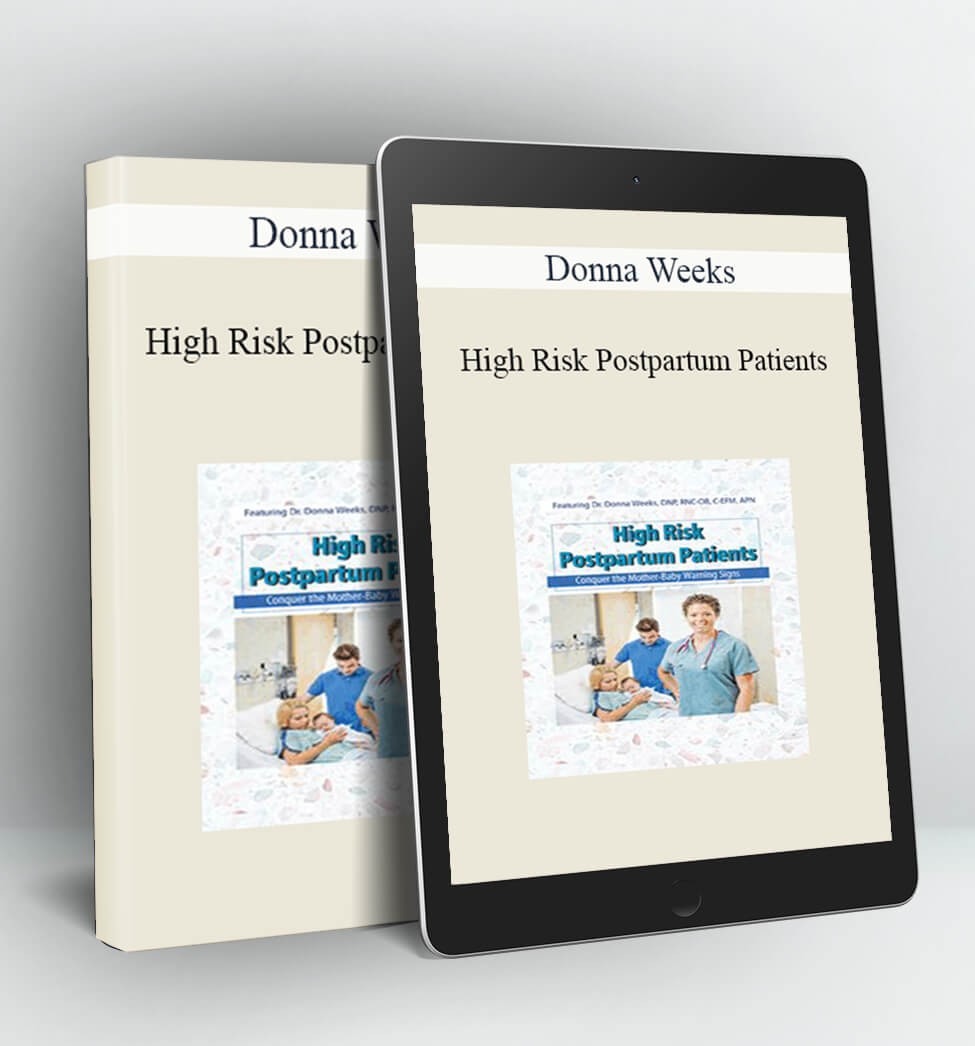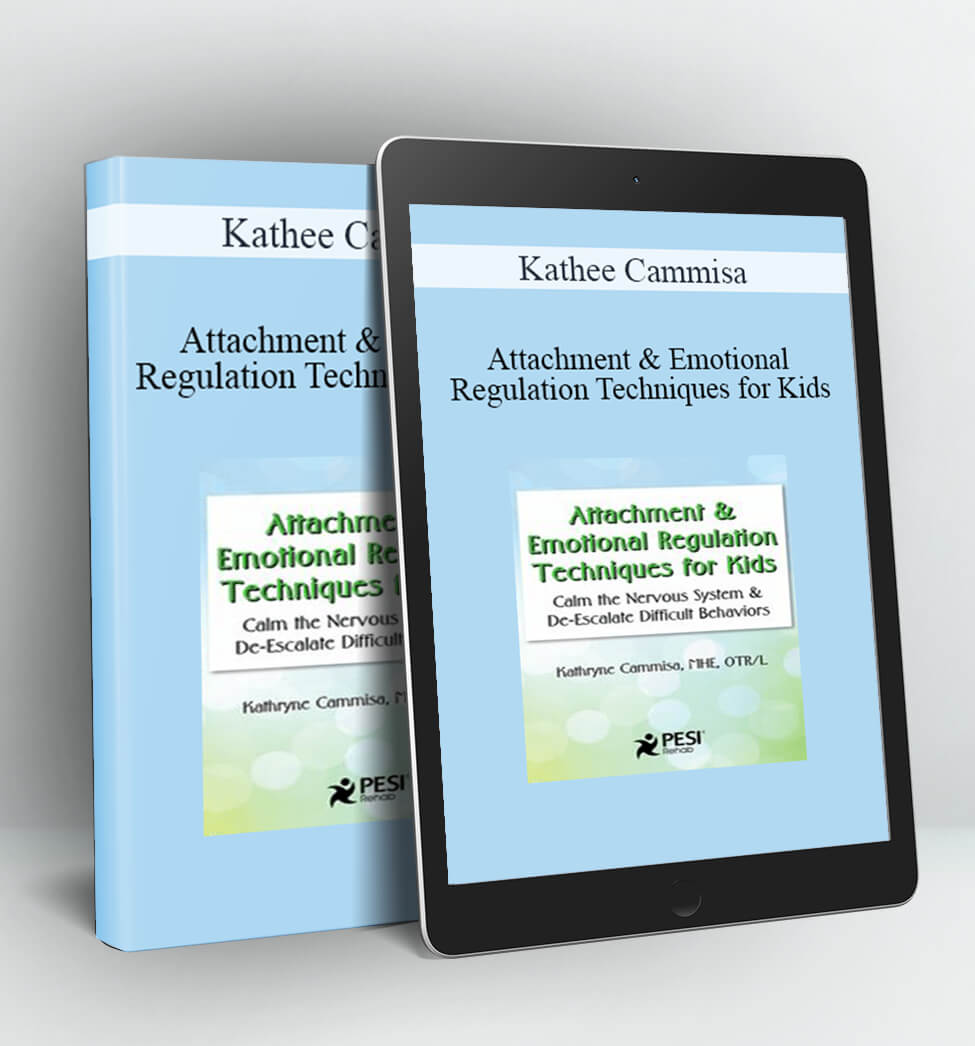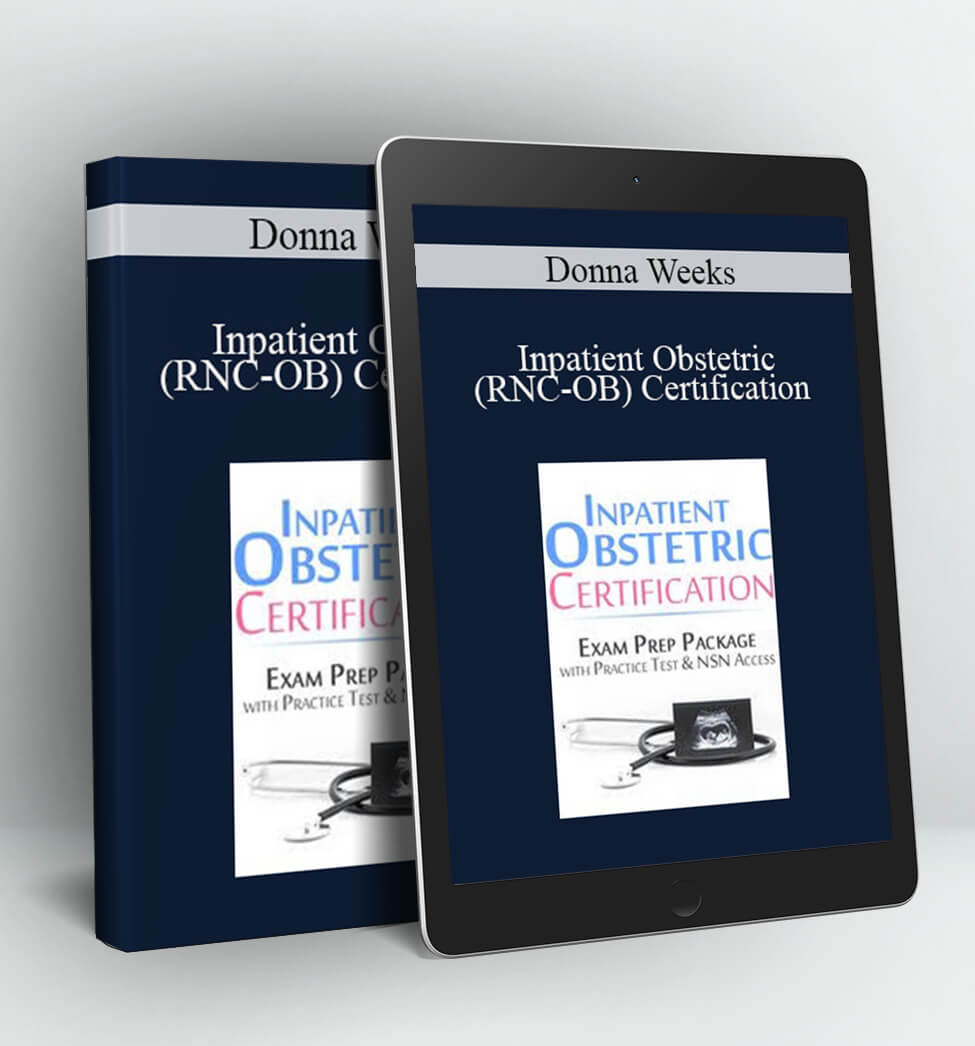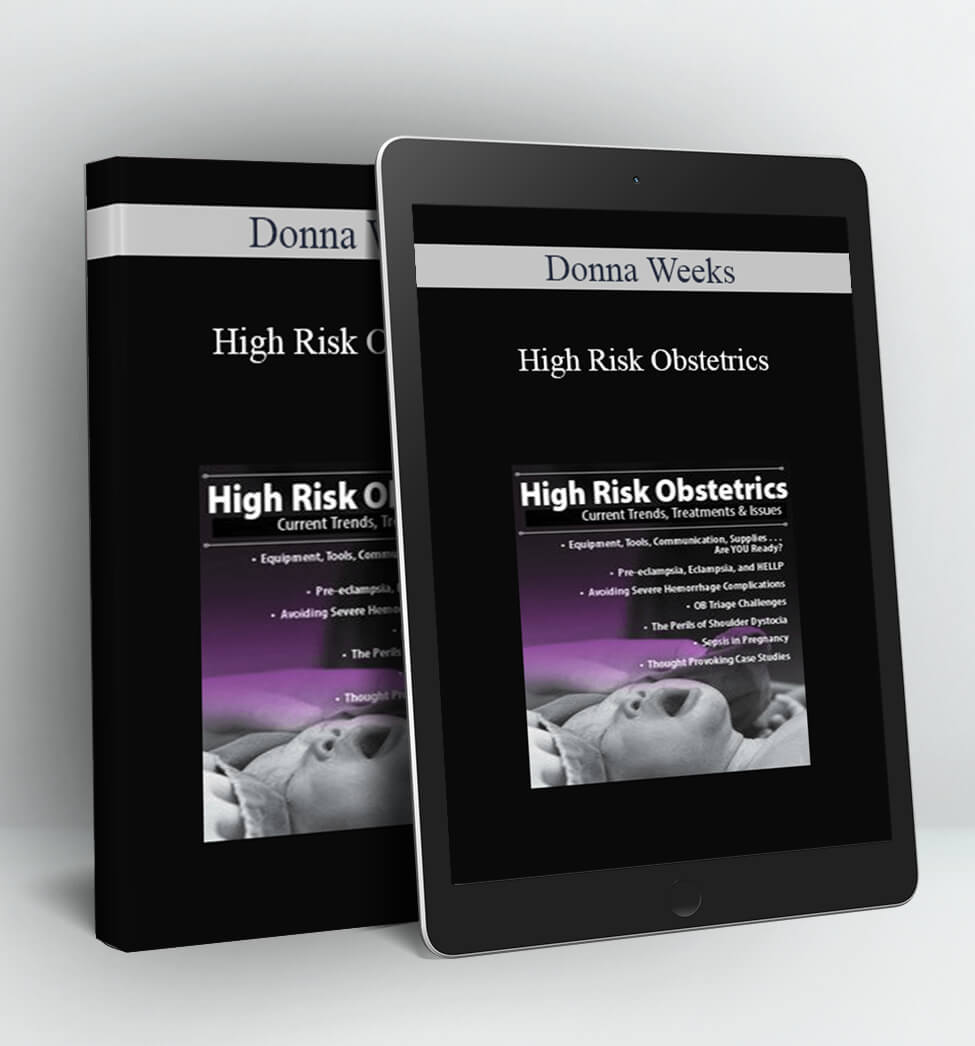
High Risk Postpartum Patients – Donna Weeks
- Faculty:
- Donna Weeks
- Duration:
- 5 Hours 12 Minutes
- Format:
- Audio and Video
- Copyright:
- May 19, 2020
Description
Caring for a new mother and her newborn is complicated, stressful, and challenging. You may be very experienced as a postpartum nurse or new in your role. Regardless, at the end of the day we want to feel as if we did a great job, but how many times do you wonder if you missed something? What could you have done differently?
The fast-paced world of OB means constant admissions and discharges. How stressed do you feel when you know you need to discharge a patient so you can accept a new one? Have you met the challenge of teaching a new mom the post-birth warning signs? Does she know how to prevent the most common causes of postpartum maternal mortality? And…do you?
Each day we try our best to care for patients. We all want to know that we did all we could for every patient. Giving the best care requires staying up-to-date. Changes, protocols, state regulations, policies, and procedures make nursing a complicated world that challenges all of us. It adds a layer of stress to each day and it feels difficult to keep up with the latest from AWHONN, ACOG, the ISMP, and the CDC. At the core…you need to understand WHY these changes occur and HOW they benefit our patients. This recording takes a closer look at some current issues and digs deeper into finding out the WHY and HOW, discussing life-saving measures for both mothers and babies. Bring important new insights back to the patient bedside to transform the care that you deliver!
Handouts
| Manual – High Risk Postpartum Patients (1.5 MB) | 110 Pages | Available after Purchase |
Outline
Prevent Complications for Postpartum Morbidly Obese Patients
- Can we prevent infection and sepsis? How about DVT and PEs?
- Interpreting critical laboratory results pertinent to this population
- Your patient had bariatric surgery – Implications based on Roux-en-Y vs. gastric banding vs. gastric sleeve
- Caregiver bias – are you at risk?
Strategies to Decrease Opioid Use Following Childbirth
- Managing post-op pain with minimal opioids
- IV acetaminophen and polypharmacy considerations
- Your patient has chronic pain. What are the effects on the baby?
- Detect neonatal withdrawal – Intervening when something is just not right
Postpartum Depression: Early Identification and Help
- Postpartum screening tools to evaluate risk: What is the nurse’s role?
- What are the baby blues? How is it different from postpartum depression?
- How to reduce the risk and prevent PPD from leading to maternal death
- Antidepressant medications – are they safe in pregnancy? What about medications and breastfeeding?
- How does traumatic birth contribute to PPD? How can you reduce the risk?
The Newborn Transition to Extrauterine Life
- Vaginal delivery vs. Cesarean section – does it make a difference?
- Taking the first breath: Why is it so hard?
- Skills for early recognition of TTN
- Must-know tips to interpret cord gasses
- The latest on neonatal resuscitation: Urgent signs you can’t miss!
- Support the newborn transition for the late pre-term: Temperature regulation, glycemic control, breastfeeding concerns
- Solve initial challenges for the breastfeeding mother
Congenital Cardiac Heart Disease
- Critical aspects of the newborn assessment
- Screening for CCHD – how does it work?
- What does pre-ductal and post-ductal really mean?
- Common and less common congenital heart diseases
- What is VACTERL?
POST-BIRTH Warning Signs
- Maternal mortality is increasing. What can YOU do to reduce this statistic?
- Recommended interventions for the 7 common causes of maternal mortality
- What are the best practices to help patients and families recognize life-threatening signs?
- Over half of maternal deaths take place during the year following childbirth. What can you do to save lives?
- Critical patient education topics for the postpartum patient
Faculty

Donna Weeks, DNP, APN, RNC-OB, C-EFM Related seminars and products: 5
Dr. Donna Weeks, DNP, RNC-OB, C-EFM, APN, has over 30 years of maternal child nursing experience where she has held roles from staff nurse, to manager, director, and educator and is currently practicing as a Clinical Nurse Specialist at JFK Medical Center. Donna’s experience includes high risk OB, L&D, postpartum and newborn nursery. One of her unique experiences includes initiating, facilitating, and evaluating a support group for hospitalized antepartum women. Donna has been instrumental in leading AWHONN’s Postpartum Hemorrhage Project as well as the Baby Friendly Initiative at her facility. She also serves an Adjunct Professor at Purdue Global University, teaching in the graduate program.
Dr. Weeks’ nursing education includes a BSN through the State University of New York, an MSN from The College of New Jersey and a DNP through Rutgers, The State University of New Jersey. Additionally, she is certified in Inpatient Obstetrics and Electronic Fetal Monitoring, is an NRP Instructor, an AWHONN Fetal Heart Monitoring Instructor Trainer, and AWHONN Obstetrical Patient Safety Trainer. Donna’s vast knowledge and expertise allow her to present the most challenging concepts in a way that is easy to understand.
Speaker Disclosures:
Financial: Donna Weeks is an adjunct instructor for Kaplan University. She has an employment relationship with JFK Medical Center. Dr. Weeks receives a speaking honorarium from PESI, Inc.
Nonfinancial: Donna Weeks is a member of the Association of Women’s Health Obstetrics and Neonatal Nursing.
Access Download High Risk Postpartum Patients – Donna Weeks right now!
Delivery Method:
After your purchase, you’ll get access to the downloads page. Here, you can download all the files associated with your order.
Downloads are available once your payment is confirmed, we’ll also send you a download notification email separate from any transaction notification emails you receive from Coursedownloads.






